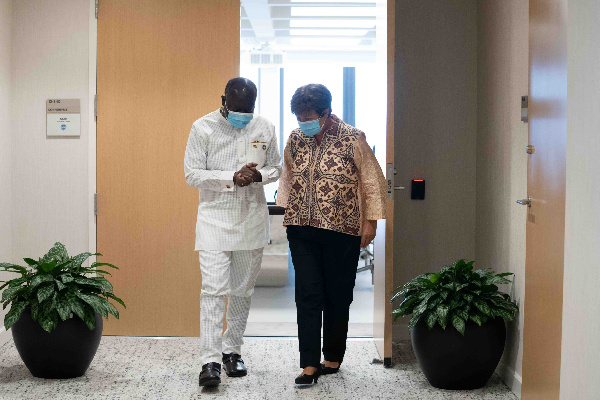Ghana’s economic recovery faces further delays as the International Monetary Fund (IMF) board approval for its support program is at risk of being delayed due to prolonged external debt-restructuring negotiations.
According to the Economist Intelligence Unit’s (EIU) 2023 Country Report on Ghana, the country’s economic recovery is expected to face headwinds due to prolonged negotiations with multiple stakeholders involved in the debt-restructuring process. The UK-based firm warns that this poses a material risk to Ghana’s economic recovery, and IMF board approval may be delayed.
The IMF support program was requested by Ghana in early July 2022, citing unsustainable debt levels, soaring debt-service costs, a severely weakened currency, and large twin fiscal and current account deficits. The country’s government announced a local-currency debt swap in early December 2022 and confirmed plans to launch an external debt-restructuring program. These actions paved the way for the government to reach a staff-level agreement with the IMF for a three-year, $3 billion Extended Credit Facility (ECF) arrangement on December 12, 2022.
However, in mid-December, Ghana announced the suspension of payments on most of its external debt, setting the stage for a debt-restructuring process. The debt-restructuring process is expected to involve official and private creditors and include a combination of write-offs, maturity extensions, and reductions in interest rates. The EIU expects Ghana to secure debt-restructuring agreements on its public external debt during 2023-24, which should provide enough reassurance to reduce Ghana’s risk of debt distress and allow the IMF to approve the agreed program.
The EIU report highlights that Ghana’s external debt stock has increased significantly, rising from $10.7 billion in 2015 to $19.3 billion in 2020. The country’s external debt-service costs have also increased, reaching 40% of government revenue in 2020. Additionally, Ghana’s current account deficit reached 5.4% of GDP in 2020, up from 2.9% of GDP in 2019, due to a sharp drop in export revenue, particularly from oil and gas.
The EIU also warned that macroeconomic instability and a public debt crisis will weigh on Ghana’s business environment and its ambitions to become a West African trading hub. A weak regional regulatory environment, poor transport links, and low foreign trade, except in commodities, will also hamper progress. The report stresses the need for Ghana to remain committed to fiscal consolidation in 2023-27, underpinned by an IMF program, to bring the public finances and debt back onto a sustainable path.
The Ghanaian government has included measures to both widen the tax net and extend spending cuts in the 2023 budget. In mid-April 2023, President Akufo-Addo assented to three new revenue-raising bills: the Income Tax Amendment Bill, the Excise Duty Amendment Bill, and the Growth and Sustainability Amendment Bill. The bills are expected to boost revenue over the forecast period, helping to shrink the fiscal deficit to 7.1% of GDP in 2023 (from an estimated 8.3% of GDP in 2022) and steadily to 4.4% of GDP in 2027.
Despite revenue mobilization measures in the 2023 budget, including the reintroduction of road tolls, a 2.5-percentage-point rise in the value-added tax (VAT) rate to 15%, and an increase in excise duties, a slowing economy will keep the revenue/GDP ratio below potential in 2023. However, the EIU expects increasing administrative efficiency under IMF guidance to boost revenue in 2023-27, as will an increase in the trade tax take in 2022.
Norvareports





